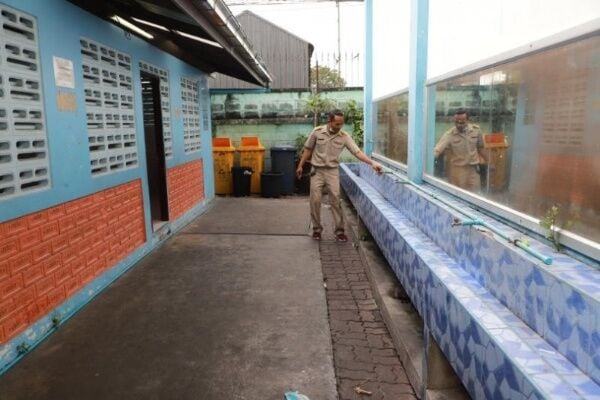Shared toilets for teachers and students stir controversy

The Office of the Basic Education Commission (OBEC) sparked controversy with its recent decision to implement shared toilet facilities for teachers and students at all of its schools. The news was met with widespread criticism on a social media platform overseen by the Education Ministry.
According to OBEC Secretary-General Thanu Wongchinda, shared toilets at schools for teachers and students will be the norm moving forward. This announcement was made via the ministry’s Facebook account, accompanied by hashtags like #fromnowoneverythingmustbeequal and #studentsandteacherscansharetoilet. The segregation of toilets will solely be based on gender, asserted the official.
This shift in policy is part of an effort to ensure cleaner school toilets, a directive from Education Minister Permpoon Chidchob. The minister’s directive was outlined in the Facebook post.
“The minister has assigned the BEC to improve school toilets nationwide so that students and teachers can share and they must be cleaner.”
The minister has previously drawn attention for his admiration of North Korea’s educational system and their strict discipline methods.
The process of upgrading toilets will commence at OBEC’s 9,700 small schools, each with fewer than 80 students. Larger schools will follow suit later. However, the shared toilet policy will be implemented in all schools this semester.
OBEC justified this move, citing a survey indicating students’ desire for cleaner school toilets. A comment quoted by the ministry during the survey read, “Toilets for teachers are heaven. Toilets for students are hell.”
The plan has not been without its critics. Former Obec Board Chairman Ekkachai Keesukhaphan expressed his disapproval, claiming that the commission was addressing the issue incorrectly. He argued the need for improved sanitation in all school toilets but also stressed the importance of maintaining respect for teachers in Thai culture. He suggested that removing this boundary could potentially harm this cultural aspect.
In the wake of the ministry’s announcement, numerous comments were posted, attributing the poor state of students’ toilets to their lack of effort in maintaining cleanliness and overworked janitorial staff, reported Bangkok Post.
One commenter proposed the idea of making toilets, originally designated for top-ranking executives, accessible to teachers, students, and other staff members.
Latest Thailand News
Follow The Thaiger on Google News:


























